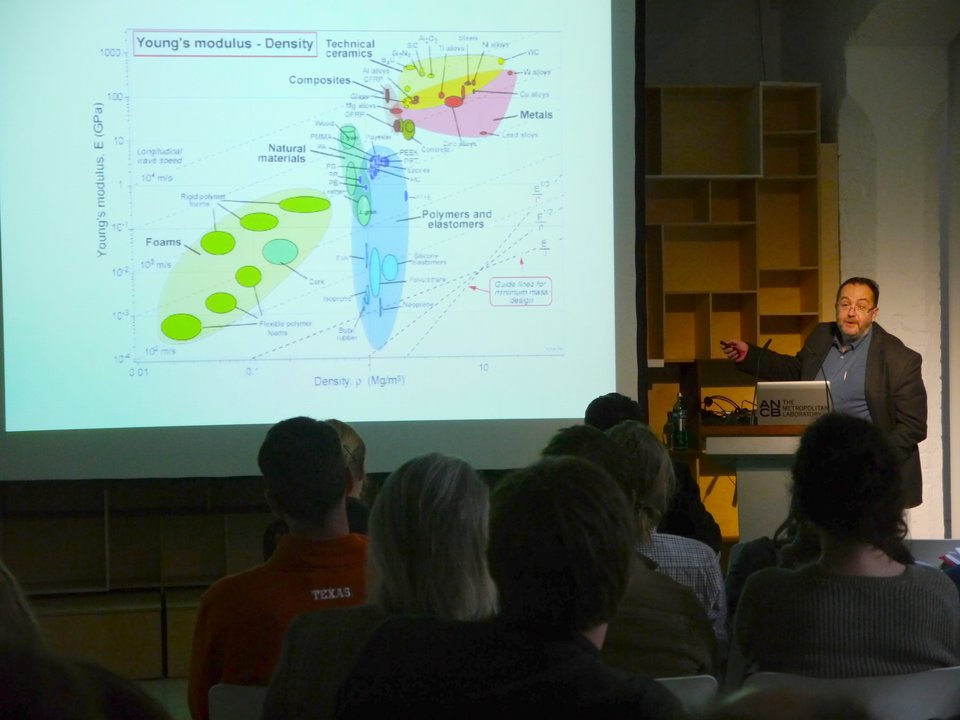Zentralinstitut der Humboldt-Universität zu Berlin

»The number of materials and processes available to the designer has literally exploded, while the requirements became more and more stringent and even contradictory, so that the current situation is both of an »hyperchoice« between existing options, and of an »hyperdemand« for developing new solutions.
This situation has triggered the development of systematic comparison methods enabling to have, thanks to the use of structured databases, a compass in materials jungle, and a guide for materials by design.
The seminar will propose an overview of the current situation and of the open issues: comparative approaches for materials and process selection, learning from past experience, expertise guides, materials by design approaches. It will illustrate the potential of »architectured materials« to combine materials, geometry, topology for »filling holes in materials space«, and will outline to potential of »nature inspiration« to extract innovative concepts for developing new materials.«
Yves Bréchet ist Absolvent der Ecole Polytechnique (1981) und hat ein Diplom in Wissenschaftsgeschichte und Festkörperphysik. Er promovierte am Institut national Polytechnique de Grenoble (INPG). Er ist Universitätsprofessor am INPG, Gastprofessor an der McMaster University (Kanada) und Mitglied des Institut Universitaire de France. Seit November 2010 ist er auch Mitglied der französischen Académie des Sciences und Professor am Collège de France.
Seine Forschungsschwerpunkte liegen im Bereich der Modellierung in physikalischer und mechanischer Metallkunde. Er interessiert sich für Phasenumwandlungen, Plastizität und Brüchigkeit und der Materialwissenschaft in biologischen Systemen. Sein besonderes Interesse gilt den Materialien in der Nukleartechnik und in Transportsystemen. Er arbeitete außerdem an Methoden der Werkstoffauswahl und der Entwicklung hybrider Materialien und ist involviert in der Erforschung natürlicher Materialien und der strukturellen Biometrie.
Eingeladen wurde Yves Bréchet vom Exzellenzcluster »Bild Wissen Gestaltung. Ein Interdisziplinäres Labor«.
